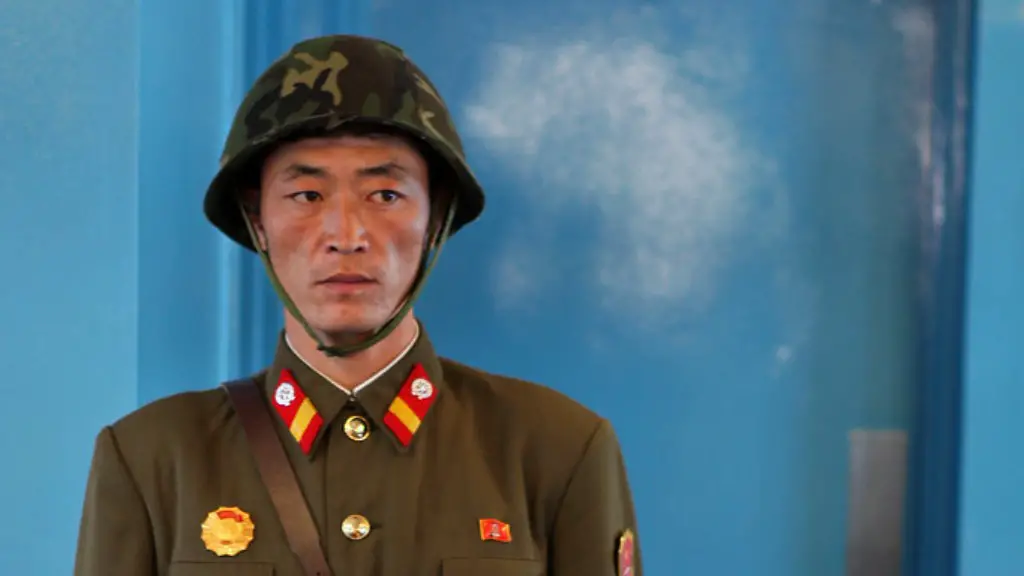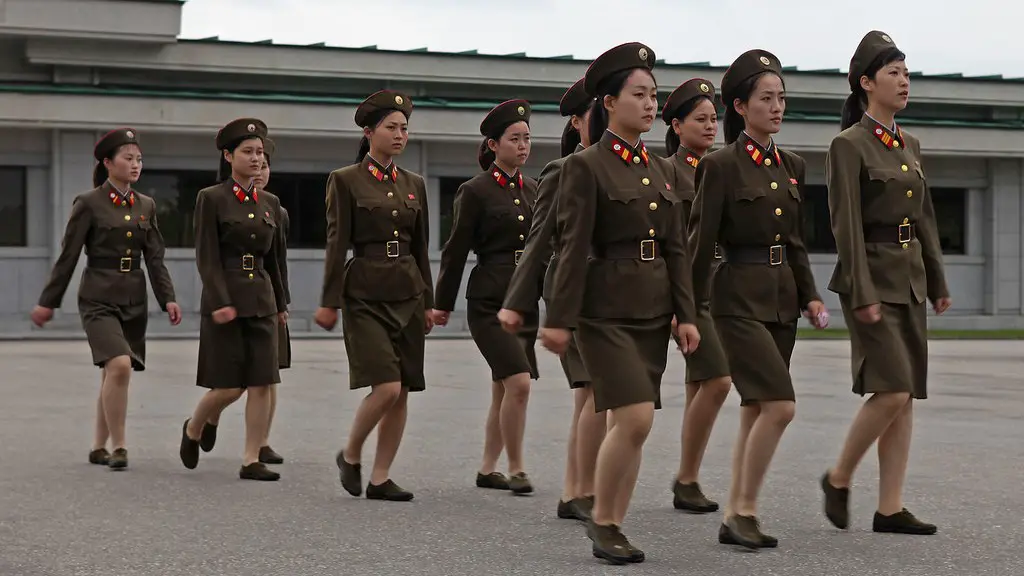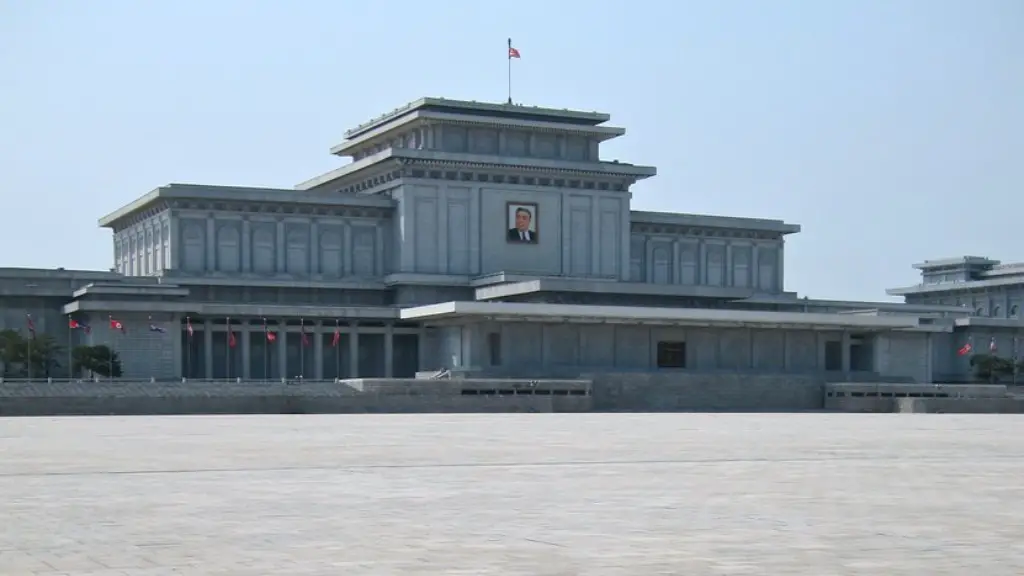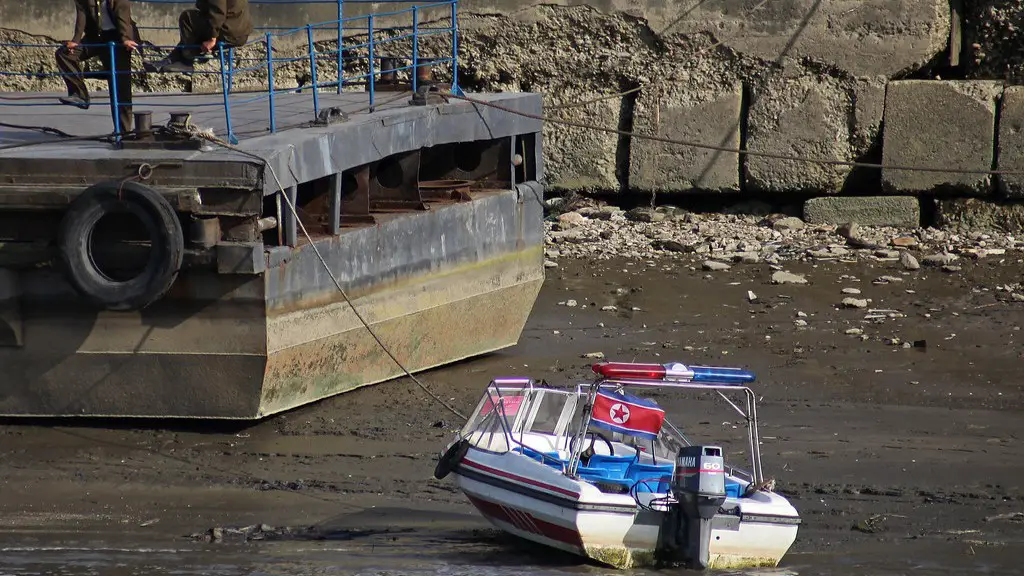Introduction
North Korea is the most closed and militarised state on the planet, and one of the last communist countries in the world. Since its founding in 1948, the country has been extremely isolated from the international community, and any information from inside the country is hard to come by. For many outside the country, the mystery and secrets surrounding it create a sense of fascination with what’s going on behind the heavily secure borders.
Government
North Korea is ruled by the Supreme Leader, Kim Jong-un, who is the head of the Workers’ Party of Korea and the Chairman of the State Affairs Commission. The state is a one-party dictatorship, and all laws are issued by the Party. The constitution of North Korea has several clauses that rely heavily on a Juche nationalist orthodoxy, which is an ideology based on self-sufficiency and self-reliance in all aspects of life.
The North Korean government is extremely authoritarian and ruthlessly suppresses political dissent, media freedom and religion. The government is known for its human rights violations, which includes a network of prison camps, pre-trial detention, torture and arbitrary executions.
Economy
North Korea has a very fragile economy and is largely dependent on foreign aid from its ally China. According to a report by the United Nations Economic and Social Commission for Asia and the Pacific, the economy has contracted significantly since the 1990s. The country has basic infrastructure and weak agricultural and industrial production due to the government’s isolationism and limited investment.
The economy of North Korea has been heavily influenced by UN sanctions aimed at preventing the government from building and developing nuclear weapons. As a result, the country is now facing a severe food crisis, with estimates that up to 10 million North Koreans are short of food.
Society and Culture
North Korea is one of the most ethnically homogenous nations in the world, with 98.5% of the population being from the same ethnic background. The country does not actively encourage immigration and is very restrictive with regards to media, religion and education.
North Korean culture has been heavily influenced by the Juche ideology, and the government has created a unique blend of communism and nationalism. The state has a bizarre cult of personality surrounding the Supreme Leader and his family, which includes a number of myths and stories.
The arts are highly encouraged and supported by the government, with cinema being a particularly popular form of entertainment. The films usually promote the Juche ideology and the loyalty and obedience to the Supreme Leader.
Military
The North Korean military is the world’s fourth largest active military, with more than 5 million active-duty personnel. The military’s primary focus is the defence of the country, but it has also been used in aggressive ways, such as the occupation of South Korea in the 1950s and 1960s.
The military is known for its show of force, which includes large-scale military parades and regular missile tests. The government spends a significant portion of its budget on the military, and it is estimated that the country has up to 30 nuclear weapons.
Geography and Climate
North Korea is located on the Korean peninsula, which is bordered by Russia, China and South Korea. It has a total area of 120,540 square km and a population of 25 million people. The country consists mostly of mountains and hills, with a small plain in the east.
The climate of the country is mainly continental, with hot and humid summers and cold winters. The mountainous regions can experience colder temperatures and snowfall.
Education
North Korea is one of the least-educated countries in the world. Education is compulsory for all children between 6 to 14 years of age, but the quality of education is very poor in comparison to other countries. Most schools do not have adequate facilities, and teaching methods are out of date.
The government of North Korea has provided education for its people, but the education system is heavily focused on the Juche ideology, and the curriculum is heavily biased towards the state and its values.
Infrastructure
North Korea has poorly maintained infrastructure, and there are very limited options for transport. The roads are made up of unpaved roads, and there are no highways or motorways in the country. Railways are the dominant form of transport, though they are also in poor condition.
The country has virtually no access to the Internet, and access to electricity is limited to the capital city and other larger cities. Communications are censored and heavily monitored, and only a small portion of the population is allowed to use mobile phones.
Media
North Korea has one of the most restrictive media environments in the world. All media outlets are state-controlled, and the government heavily censors any information that could be seen as a threat to its authority. Access to foreign media sources is completely prohibited, and most North Koreans only have access to state-run television and radio.
The media is heavily biased towards the government, and routinely focuses on topics such as the cult of personality and the achievements of the Supreme Leader. There have been reports of journalists being detained and executed for reporting on topics that the government considers sensitive.
Tourism
North Korea is one of the most difficult countries in the world to visit, and the government has very strict regulations on who is allowed to enter the country. There are only a handful of tour companies which are allowed to take tourists into the country, and they must follow very specific rules.
The government uses tourism as a means of generating revenue, and tourists are encouraged to spend money on packages which include visits to Kim Il-sung’s mausoleum and the DMZ. Despite the restrictions, the number of tourists to the country has been increasing in recent years.





